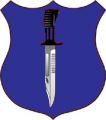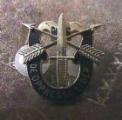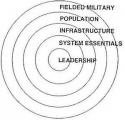Ahh, brother WILF. As you focus more on the military aspect of insurgency and counterinsurgency, you are more, I believe, of the counterinsurgent camp. "Defeat the insurgent and defeat the insurgency."
I have come to the position where those activiities are certainly a critical supporting effort of any good COIN program, but that one must primarily "address the root causes of poor governance to defeat the insurgency."
As you look at the long history of such conflicts everytime the former approach was used it merely suppressed the movement, never solved it.
The much touted tactics applied in Malaysia of "separating the insurgent from the populace," while feasible in that era and that environment simply are not any more. If its just me and a dozen buddies hunkered, cold, wet, miserable, infested with jungle sores, constantly on the run, it is easy for us to simply give up hope and quit. We feel quite alone and ineffective. But when I get a text on my cell from a supporter back in the UK telling me how we are inspiring the movement there and to keep up the good work, or from the capital where a webpage is being managed that brags about our deeds and the worthiness of our cause, or from a similar movement three countries over where they just had a major success, or when I check the balance of my account and see that money is pouring in from supporters around the world...etc. It's just damn hard to break my morale or separate me from the populace.
All the more reason that the COIN force, the government, must be more sophisticated and more holistic these days. Must stop being cavalier and simply blaming the insurgency on the populce (the "let them eat cake" approach) or on some evil outside instigator with his ideology (the "Pied Piper theory of insurgency approach). One must get real. One must take the (ok, 12-step approach). "Hi, my name is (insert name of national leader here), and I have a problem...
Until one does this, they are simply blaming their failures on others and attempting to suppress the evidence of those same failures.













Bookmarks